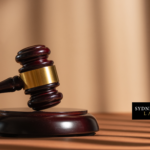Can I make a request for criminal charges to be dropped?

Are you facing criminal or traffic charges?
You may not be aware that you have the right to apply for your charges to be changed, reduced in number or dropped altogether by making written ‘representations’ to the Local Area Commander of Police or, if your case is in the hand of the Director of Public Prosecutions (the ‘DPP’), to the DPP.
If you have been charged with a serious offence, representations may enable you to have your charges reduced to a lesser charge, and help you escape a heavy penalty.
What are ‘representations’?
Representations are a letter to the prosecution asking them to drop some or all of the charges against ithdyou.
Representations can be made at any time, even at the beginning of a case.
There is no limit on the number of times you can make representations, and it is not unusual for them to be made at the very start of the case and also later after you have received relevant materials.
If they are successful, you could have the charges against you dropped entirely and avoid having to go through a lengthy criminal process.
Are representations better than adjournments?
Adjourning cases from court-date to court-date can result in stress and expense, and the outcome will often still end up the same, even if it has been delayed.
A good criminal defence lawyer will put in the time and effort to push for your charges to be reduced or dropped altogether by making representations, as long as there are reasonable grounds to do so.
As representations can be undertaken from the very beginning of the court process, they can result in a quick resolution, unlike continuous adjournments which can make the entire process drag out for months or even years.
Do I need a lawyer to make representations?
You can make representations without the help of a lawyer, but it is strongly recommended that you at least seek legal advice before writing representations yourself.
Many lawyers will offer a free first appointment where you can get advice about the strengths and weaknesses of your case, and what your representations should focus on.
But be aware that the strength of your representations will often depend on how well they pinpoint legal, evidential and factual flaws in the prosecution’s case and this may require a high level of legal knowledge and relevant experience.
Representations can be lengthy, especially for serious charges, and they need to be written as persuasively as possible.
Some of the information you will often need to put in your representations include the details of the charges, the relevant legislation / case-law and how they apply to the facts-at-hand, and the basis for asking for the charges to be withdrawn or reduced.
The more detailed and persuasive your representations are, the more likely it is that they will be successful.
Are there any disadvantages to making representations?
As representations often involve pointing out flaws in the prosecution’s case, there is the potential danger of alerting the prosecution to weaknesses which they may then try to correct to strengthen their case against you.
A good criminal lawyer, however, will be able to draft representations so that there is no possibility of the prosecution being alerted to something they can later rectify.
It is also important to keep in mind that the prosecution will normally be well-aware of the basic flaws in their case against you – so pointing them out will essentially emphasise the fact that you ‘know your stuff’ and are unlikely to lie down and plead guilty.
The other thing to remember is that, for cases that are going to trial, there are now ‘mandatory defence disclosures’ anyway – which means that you will need to disclose parts of your case in any event.
Also, if you have any type of alibi, you are required to serve an ‘alibi notice’ in the lead-up to trial anyway, which will let the prosecution know about the nature and specifics of your alibi defence.
All of this means that carefully drafted representations are extremely unlikely to cause any type of strategic or forensic disadvantage.
Who should I make the representations to?
Representations can be made to the Local Area Commander of the police station where you were charged, or the DPP if the matter is more serious and has been taken over by the Director of Public Prosecutions.
If the prosecuting agency was another authority, like the Roads and Maritime Services or the local council, the letter should be addressed to them.
What happens if the prosecution doesn’t agree?
If, after you have submitted your representations, the police or other prosecuting agency doesn’t agree to withdraw or reduce your charges, the matter will keep going as if the representations had not been made at all.
If you have made representations and the prosecutor hasn’t responded by the time of your court date, you can ask to have your case adjourned until the police have made a decision.
What should I do now?
If you think you may have a case for making representations it’s a good idea to seek legal advice as soon as possible.
If you are successful you can avoid a long drawn-out and expensive court hearing and avoid the possibility of a criminal conviction.
Police often have flaws in their cases, and if there isn’t a reasonable possibility of prosecution, a matter often won’t go to a hearing or trial.
In fact, the policy of both police and the DPP is to withdraw charges if there is no reasonable possibility of a conviction.
Another advantage of representations is that, if the case nevertheless goes all the way to a defended hearing and you win, the representations can be handed-up to the court in support of an application for legal costs.
If that application is successful, police will have to pay part or all of the legal costs you have incurred.
Why don’t all criminal lawyers regularly use representations?
Representations will often lead to cases being dropped at an early stage.
This will mean that the lawyer will make less money than if the case kept going all the way to a local court hearing or district court jury trial.
I have been using representations since I started working as a criminal defence lawyer more than 15 years ago.
I recall having a murder case withdrawn in my first year as a criminal lawyer through drafting detailed representations. That case involved an alleged prison murder but careful analysis of the the CCTV footage suggested it was unlikely that my client could have committed the offence.
The case had just been committed to the Supreme Court and would likely have gone to trial in 6 to 12 months.
My client had served his sentence for drug supply by the time I made the representations and was in custody for the murder charge only.
The representations resulted in my client being released from custody and not having to face a (lengthy and always risky) Supreme Court trial.
I recall my boss saying words to the effect of, ‘yeah but what happens now’, ‘we don’t get to run the trial’. It was a significant financial loss to the practice.
I was actively dissuaded from drafting representations for that reason, so I usually drafted them after hours or on weekends.
Successful representations will be financially detrimental to a criminal law firm in the short term, and it’s my belief that this is a primary reason that some firms are reluctant to use them.
They can also require a high level of legal knowledge, a thorough understanding of the case-at hand, relevant experience and a good analytical mind.
Detailed representations are a vital component of our practice and regularly lead to our clients’ cases being dropped at an early stage, or to successful cost applications after cases are later won in court.
They are greatly advantageous to our clients and to our law firm because they lead to client satisfaction, referrals and a solid reputation.
It also just feels good knowing that you are doing everything you possibly can for your client.






